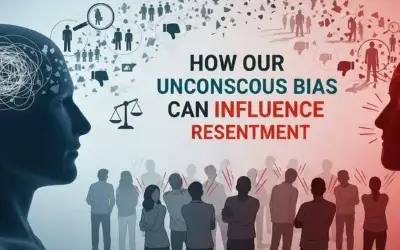
The inner effects of addictive behaviors can cause tremendous suffering. Knowing the science behind addiction can help those addicted to substances and their treatment specialists better understand what is happening and help lessen that suffering.
In this guide, I will discuss addictions as a way to manage past trauma, how they affect the brain, their impacts, the factors involved, and effective treatments.
What is Addiction?
Addiction is a chemical dependency on a substance that can influence the inner state of the mind and body. Substances enter into the bloodstream and are then routed to the brain.
Mind altering substances shift one’s state of well being, creating an altering state by activating a hyper-production of neurotransmitters called “dopamine.” Neurotransmitters are known to be messengers and are now understood to also transmit information to the pleasure reward area of the brain.
How Substances Affect the Brain
When you take drugs, they get into your blood and move to your head. This makes your mind change, giving you a different feeling of being awake, activating the pleasure reward areas of the brain. Dopamine, a neurotransmitter, is key in this change and makes drugs hard to quit.
Factors in Addiction and Their Impacts
| FACTOR | IMPACT |
| Dopamine Levels | Euphoria and memory formation, leading to tolerance |
| Withdrawal Symptoms | Psychological and physiological distress |
| Trauma and Nervous Systems | Overactive or underactive states influencing substance use |
| Treatment Approaches | Traditional vs. trauma-informed, focusing on underlying causes |
What is Dopamine?
Dopamine has two parts, one being the memory cell and transportation of the message to the pleasure reward center of the brain – creating a euphoric effect. The more substances are used, the more the brain gets conditioned, then leading to a state called tolerance.
Therefore the brain requires more of the substance to create the same amount of dopamine. There does come a point where the brain can no longer produce a satisfactory amount of dopamine, regardless of how much substances are ingested.
When this occurs, signals are sent from the brain leading to symptoms of withdrawal.
- • Memory Cell Activation: Dopamine helps form memories associated with substance use. When substances trigger the release of dopamine, these experiences are recorded in the brain as pleasurable and worth repeating.
- • Pleasure Reward System: Dopamine activates the brain’s pleasure reward center, creating euphoric effects. This reinforcement leads to repeated substance use as individuals seek to recreate these pleasurable feelings.
- • Development of Tolerance: As substances continue to be used, the brain becomes conditioned to require more of the substance to achieve the same dopamine levels. This phenomenon, known as tolerance, means that over time, larger amounts of the substance are needed to produce the same euphoric effects.
- • Limits of Dopamine Production: There comes a point where the brain can no longer produce sufficient dopamine, regardless of the amount of substance ingested. When this occurs, individuals experience symptoms of withdrawal as the brain signals that it cannot maintain its previous dopamine levels.
The Role of Dopamine
Dopamine is a key neurotransmitter involved in addiction. It plays two primary roles:
- 1. Memory Cell Activation: It helps form memories associated with substance use.
- 2. Pleasure Reward System: It activates the brain’s reward center, producing euphoric effects.
As substance use continues, the brain becomes conditioned to require more of the substance to achieve the same dopamine levels, leading to tolerance to drug abuse. Eventually, the brain can no longer produce sufficient dopamine, regardless of substance intake, resulting in withdrawal symptoms.
What is Withdrawal?
When individuals do not have access to substances, their nervous system becomes psychologically and physiologically activated and in a state of crisis. This can lead to acute withdrawal symptoms, which can be increased by underlying trauma. Symptoms include:
- • Euphoric recall
- • Using dreams
- • Irritability
- • Discontent
- • Restlessness
- • Rationalizing relapse
- • Obsessive thinking
- • Anxiety
- • Depression
- • Anger
- • Angst
What Other Factors are Involved in Addiction?
A large majority of individuals having an addiction also suffer from an overactive or underactive nervous system as a result of traumatic experience of complex early childhood trauma, where their nervous systems have been mapped to be overactive, living in a heightened state of fear arousal or underactive living in a more dissociative state.
The following are several factors that contribute to the development and persistence of addiction. Understanding these factors can help formulate effective treatment plans.
Impact of Childhood Trauma
Many people with addiction also have a too-high or too-low nervous system because of bad things that happened when they were kids. This trauma can make the nervous system act like it is always scared or numb. This leads to bad ways of dealing with problems (maladaptive coping mechanisms), like using drugs too much.
Maladaptive Coping Strategies
arly on in life, many individuals learn to maladaptively manage their inner state of their nervous system. This can involve being overly responsive and living in a state of fear, or under responsive and living in a state of numbness, disconnection, and fatigue. Substance use disorder very often becomes a way to manage these extreme states. Effective addiction treatment must address these underlying trauma responses rather than just treating the symptoms.
Environmental Trauma and Victimization
When environmental trauma and victimization occur, the nervous system’s baseline operating function can be altered, causing individuals to feel too much or too little. This imbalance can drive the need for substances to either calm an overactive state or stimulate an underactive one.
The Importance of Adaptive Coping Strategies
Learning healthier adaptive coping strategies to manage these states is critical to treating addictions. Providing individuals with the knowledge, training, and skills to manage their inner state adaptively needs to be a key component of treatment or therapy itself. Without a doubt, trauma reinforces the substance abuse cycle.
Trauma and the Nervous System
Early trauma often leads to two states in the nervous system:
- Overactive State: Individuals feel too much, living in constant fear and anxiety.
- Underactive State: Individuals feel too little, resulting in numbness, disconnection, and fatigue.
Substance use often becomes a way to manage these states. Effective addiction treatment must address these underlying trauma responses rather than just treating the symptoms.

Treating Addiction with a Trauma-Informed Approach
Traditional addiction treatments often fall short because they do not address the impact of trauma on the nervous system. A more effective approach involves understanding addiction as a response to trauma and incorporating strategies that teach individuals to regulate their inner states adaptively.
The Importance of Safety
Safety is a fundamental need in Maslow’s hierarchy. Without it, individuals will seek quick and easy ways to cope, leading to addictions. Providing information on the neurobiology of trauma and addiction, along with ‘bottom-up’ approaches to treatment that focus on inner state regulation, can significantly support addiction recovery itself.
How Does This Affect Addiction Treatment?
The treatment of addictions needs to shift from a pathologizing approach of a highly vulnerable population and move towards understanding addictions itself as a response to prior traumatic experiences because of trauma. Safety is a “basic need” in Maslow’s hierarchy. Without safety, people will always seek out quick, down and dirty easy ways to cope and survive, henceforth addictions.
Providing information on the neurobiology of trauma and addictive cycles on the brain and incorporating more current ‘bottom up’ approaches to treatment that consider teaching inner state regulation will significantly support those working with mental health and treating those with addictions.
Final Thoughts on Trauma and Addiction
Understanding the link between addiction and trauma is crucial for effective treatment. By addressing the underlying causes of treating trauma and teaching adaptive coping strategies, treatment specialists can better support individuals on their path to recovery. At Ian Robertson Therapy, we provide effective support to overcome the cycle of trauma and substance abuse problems with proven, effective treatment models.
Frequently Asked Questions (FAQs)
Why is dopamine important in addiction?
Dopamine creates euphoric effects and helps form memories associated with substance use, leading to tolerance and dependence. It plays a crucial role in the brain’s reward system, reinforcing behaviors that lead to its release.
How does trauma influence addiction?
Trauma plays an important role in the development and persistence of addiction. Understanding the connection between traumatic events and substance abuse is crucial for effective treatment and recovery. Here, we explore how trauma influences addiction, particularly in the context of drug and alcohol abuse, mental health disorders, and adverse childhood experiences.
What is a trauma-informed approach to addiction treatment?
It involves understanding addiction as a response to trauma and incorporating strategies that teach adaptive coping mechanisms and inner state regulation. This approach emphasizes creating a safe and supportive environment for healing.












